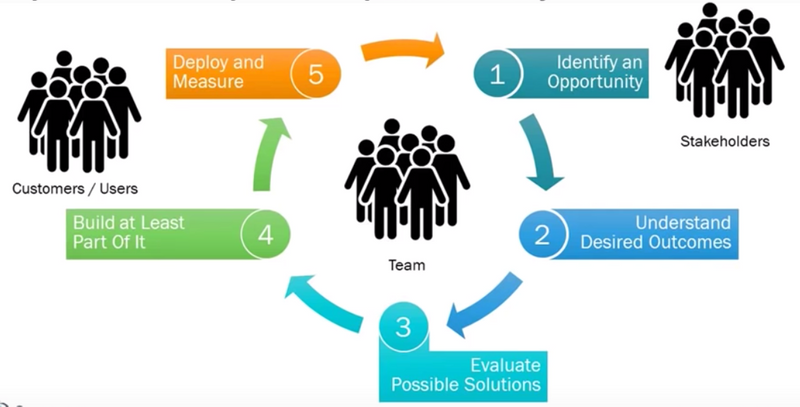What it Means to Treat Your Business Like a Business
If you are thinking about starting a business or have already created one, you might hear advice from others like "treat your business like a business." But what exactly does that mean? This post will talk about what it means to treat your business like a business.
Before we talk about what it means to treat your business like a business, let's talk about what it doesn't mean.
It Doesn't Mean Working 60 Hours per Week
Putting in long exhausting days will do more towards burning you out than building your business. If you manage your business using project management, you will see a direct path to your goals. Pacing yourself will go a long way toward achieving your dreams because you reduce the risk of running out of steam, leaving you feeling less creative and innovative. Plus, it can make overcoming obstacles more difficult because you can't problem-solve effectively.
I built my business while working a 9-5. You can do it too. The key is to be realistic about what you can achieve and when you can complete your projects so you don't get disillusioned along the way. Stay the course and do the work, one project at a time.
It Doesn't Mean Sacrificing Everything
While building a business does require some sacrifice, it doesn't have to cost you everything. By taking a project management approach to your business, you can evaluate every project and set boundaries for your timeline, budget, and scope.
So what is a "project management" approach?
By leaning on the framework of project management, you do your work in a structured way so that you keep your eye on the goals while completing your project's tasks. It also means that you are guarded when it comes to learning so that you don't end up with the dreaded shiny object syndrome. Instead, you only learn what is necessary to complete your projects, then circle around during continuous improvement to learn deeper and improve your products and services.
So now that we talked about what treating your business like a business is not, let's take a look at what it is.
You Commit
Building a business takes a lot of time and energy, and if you are not fully committed to it, you may find yourself stalled more often than not. By committing yourself to your business, you slate out a set amount of time each week to build, grow and scale your business. Whatever phase you are in, you must be committed to seeing it through.
Your business is not something you are doing "for now." If you are genuinely committed, you see this as your career for the long haul, the rest of your working days. Does that scare you? Well, maybe it should because that is the mindset it takes to make it happen and truly commit to your business.
You Show Up
Not only must you be committed to your business for the long term, but you must also show up. Showing up is more than "clocking in," sitting at your desk and doing some work. You must show up for your vision and keep your dream alive each day. The day-to-day work is simply the means to making that vision a reality and working your business every day, even when you are in the weeds, means supporting the vision of your business.
Taking a project management approach will ensure you never lose sight of that big goal because each project is aligned with that goal. So when you are in doubt, take a look at what the cumulative effect of completing your projects will do and what it will achieve. By taking a top-down approach to managing your business, you will never lose sight of why you started this venture in the first place.
You Plan
While you may have jumped right in and started your business, learning basic project management practices and the framework of Scrum can make all the difference when it comes to implementing your ideas. Planning isn't organizing. Planning is walking through step by step what is required to achieve your goals, then creating projects to categorize your work so you can work toward milestones and continue moving toward your goal. It does not matter how long it takes; it only matters that you stay true to your plans and implement them one by one. The cumulative effect is a thriving and growing business.
You Finish
Not finishing is a common problem among entrepreneurs. It's essential to determine what finished means during the planning process of your projects. Otherwise, you could end up making common mistakes such as creating a product and then not following through to promote it to its full potential. Follow-through is critical so you can learn from your mistakes and correct them during the next iteration.
You Assess
Assessing your work is critical to your longevity as an entrepreneur. This can take the form of reviewing social media and website analytics or performing an audit of your website, course, or coaching program. The assessment phase of building out your business will help you keep your finger on the pulse of your audience so you can respond to their needs effectively. Assessment enables you to identify new content or coursework opportunities and identify opportunities to improve your work. Leave room in your schedule for regular evaluations of all your work.

You Continuously Improve
Continuous improvement is a central component in the Scrum Framework. It must be part of your development lifecycle for all things, including your website, course offerings, coaching program, products and marketing. You can more easily let go of perfectionism by committing to continuous improvement because you know you'll be circling back to make improvements. This concept is so freeing because, let's face it, you will never get anything perfect. There is always room for improvement, so make continuous improvement a part of our content and course development lifecycle.
You Create a Career Path
As I said before, the moment you decide to open a business is when you have decided to enter into a career in entrepreneurship. It's exciting to think about the future and what it will hold. But the people who propose a 5 hour week didn't start that way unless they had money to invest in building a team first. But if you are like the millions of entrepreneurs who start alone with a small investment, you probably quickly realize that you are not the leader all the time. Much of your time is spent in the weeds, doing the work, building your website, writing emails, writing blog posts, and so on.

However, as your business takes off, you may want to invest in people and build a team. This requires you to step into your leadership role. I recommend that you spend a few minutes a day reviewing your goals, your progress toward those goals and where you are in the process. This allows you to make decisions at the higher level, as the leader of your business, before you get into the detailed work.
Think about what you love doing for your business and hate doing for your business. Also, think about what you're good at and what you are bad at. You could create a spreadsheet with everything you do for your business. Then categorize them into roles and rate them as good at, bad at, like to do, don't like to do. When it comes time to seek help and build a team, you will have a lot of the work done to create a job description and announcement and you will be ready to let go and step into your leadership role.
Do you want to run your business like a business? You're in the right place. Click and join the Take Charge of Your Biz Challenge. You'll learn our signature time management system along with the framework of Scrum, which we have adapted for the entrepreneur. Even if you work alone, learning how to manage your work to complete your weekly tasks and still make progress on your projects will help you confidently manage the build-out, growth and scaling of your business.









